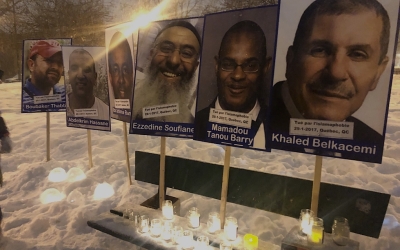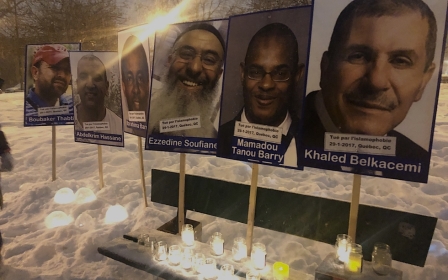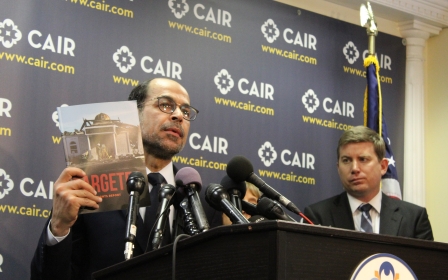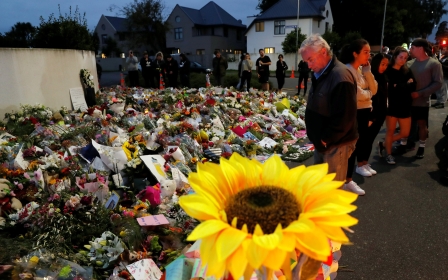Canada: Calls to combat hate grow in aftermath of Christchurch massacre
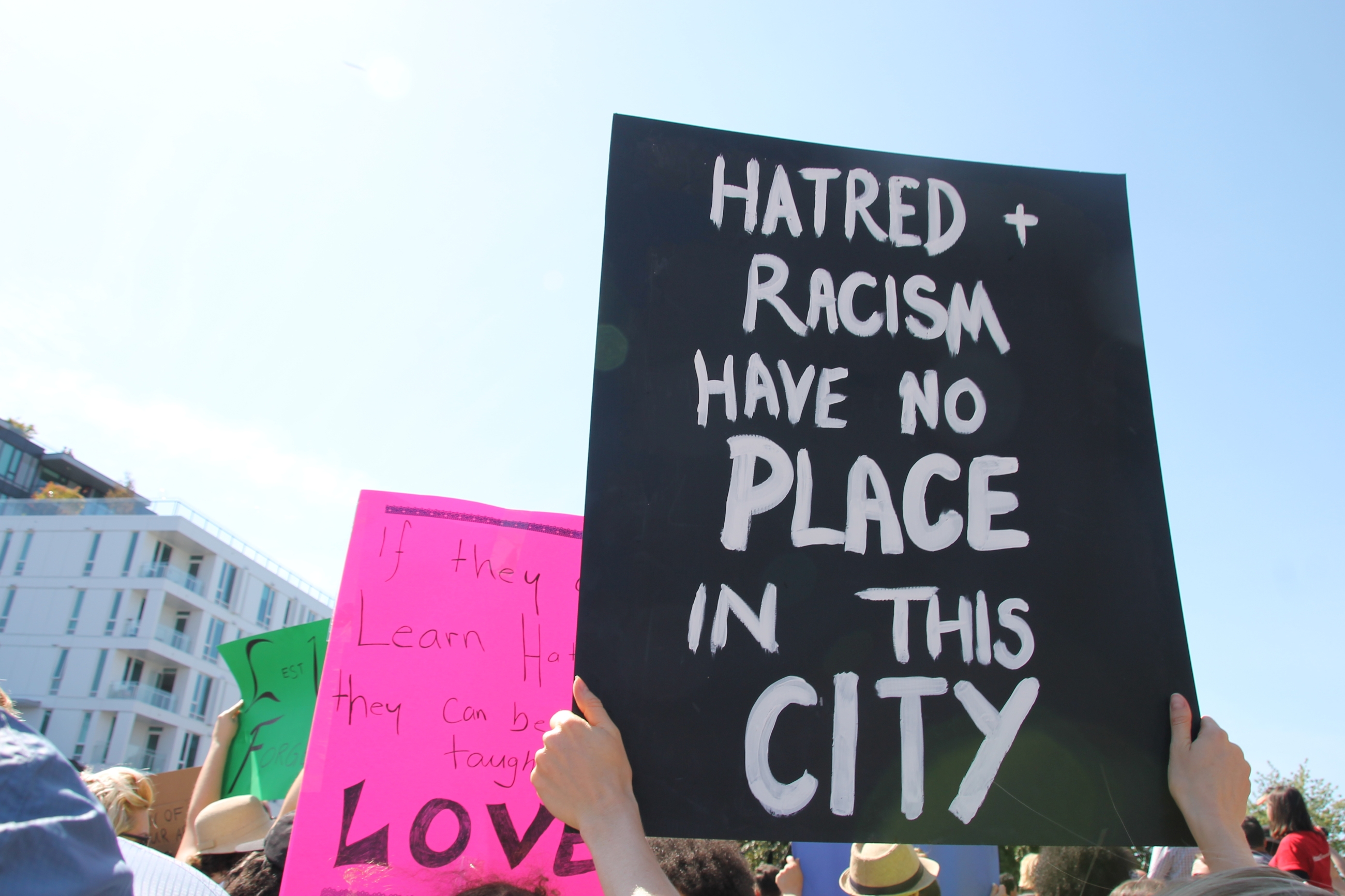
Justin Trudeau made an impassioned speech in the Canadian parliament this week, days after an attack on two New Zealand mosques left 50 Muslim worshippers dead.
"When we fail to denounce hatred with total conviction, we empower those people and legitimise their violence," Canada's prime minister said on Monday.
"We have to chase out this hatred from our parties, fight it online, denounce it at town halls, push back when it reaches our front door."
But while Trudeau condemned the Christchurch shooting and called for action against homegrown white supremacist violence, Muslim community leaders across Canada say words are not enough.
Many are calling for Ottawa to do more to combat Islamophobia and far-right ideologies, like those that underpinned the attack on two mosques in New Zealand on 15 March and the deadly 2017 attack on Muslim worshipers in Quebec City.
The attack in Christchurch has also fuelled growing calls across Canada for the federal government to add white nationalist hate groups to the country’s terror list.
But there is an ongoing sense of frustration among many Muslim Canadians, who say their demands aren't being heard.
"Canadian-Muslim communities have been asking for a national action plan for years … but have been ignored," said Imtiaz Popat, a Vancouver-based Muslim activist and board member of the Muslim Canadian Union.
"There has been a call to make January 29th National Day Against Islamophobia, marking the Quebec mosque massacre, but the federal government has ignored that as well," he told Middle East Eye.
Government action
That isn't to say that Trudeau's government has done nothing.
On Tuesday, the prime minister's Liberal Party put forward a motion calling for the parliamentary Justice Committee to begin a study on the rise of hate crimes in Canada.
The country recorded a dramatic surge in hate crimes in 2017, which according to Statistics Canada data, was driven largely by violence against Muslim, Jewish and Black people.
'[Canada] has one of the most comprehensive sets of laws against hate crime and hate propaganda anywhere in the world'
- Celia Caron, Justice Ministry spokeswoman
Also this week, in the federal budget unveiled on Tuesday, the government announced the creation of an anti-racism secretariat.
That secretariat will also be able to allocate funds to install security infrastructure, such as video cameras at places of worship.
On 13 March, the day before the Christchurch mosque killings, the government also announced it would spend more than $300,000 to research right-wing extremism in Canada.
But it remains unclear if Trudeau, who is facing a tough challenge in federal elections set for October, plans to take legislative steps to rein in hate speech.
In fact, many groups say Canada's efforts so far are not enough to stem right-wing violence and that legislative change is key.
Hate speech laws
Some have pointed to a facet of Canada's human rights act that was overturned in 2013 under Trudeau's predecessor, then Prime Minister Stephen Harper, as being a way to try to combat right-wing incitement.
Section 13 of the Canadian Human Rights Act, known as the "hate speech provision", stated that it is discriminatory to communicate any material "that is likely to expose a person or persons to hatred or contempt".
While free speech advocates and Conservative politicians praised the Harper government's decision at the time, human rights lawyers and the Canadian Bar Association lamented the loss of the hate-speech provision.
Others, such as Popat, raised concerns that advocating for stronger action against hate speech could criminalise criticism of Israeli human rights violations or support for the Boycott, Divestment and Sanctions movement for Palestinian rights.
Still, many have argued that Section 13 was an important tool in helping to curb hate speech and that removing it would lead to the proliferation of such speech online.
Ottawa-based human rights lawyer Richard Warman, who successfully brought more than a dozen Section 13 complaints against neo-Nazis and white supremacists before the Canadian Human Rights Tribunal, said Section 13 helped sideline neo-Nazis from the internet because of its power to obtain cease-and-desist orders.
"Virtually every other Western democracy has these kinds of civil law controls on hate speech," Warman told The National Post newspaper in 2013. "Now, Canada just moves one large step further out of line from realising that these kinds of controls are necessary and imperative."
That was recently echoed by Bernie Farber, chair of the Canadian Anti-Hate Network, which works to combat extremist violence and hate speech.
Farber said the repeal of Section 13 "arguably became the spark for the divisive anti-Muslim hate that continues today, with hate-motivated crime, particularly against Muslims, hitting an all-time high and neo-Nazis, lone wolves and the hard-right using the internet to recruit new members and propagate their hate".
"To be sure, social media has now become the preferred tool of white supremacists," he wrote in an editorial for NOW magazine in February.
'Opened up the wound'
But the Canadian government says the country’s existing laws prohibiting hate propaganda are already robust.
Asked whether Ottawa intended to re-enact Section 13 or add white supremacist groups to the terrorist list, a spokeswoman for the Canadian justice ministry said the country "has one of the most comprehensive sets of laws against hate crime and hate propaganda anywhere in the world".
The Criminal Code already prohibits "the most serious kinds of hate propaganda", including promotion of genocide, incitement to hatred and wilful promotion of hatred against an identifiable group, Celia Caron told MEE in an emailed statement.
'We are still not over the Quebec City massacre, and now this attack, with 50 people dead, including women and children. Christchurch just opened up the wound again'
- Imtiaz Popat, Muslim Canadian Union
Caron said the government would also review the conclusions and recommendations of the Justice Committee's study into online hate speech and incitement.
In the meantime, Muslim communities in Canada continue to call for more action, especially in light of the New Zealand and Quebec City attacks.
Those massacres left Muslims in Canada "feeling very vulnerable and unsafe", said Ihsan Gardee, executive director of the National Council of Canadian Muslims, a national advocacy group, in a statement last week.
Popat agreed, saying that for many communities vulnerable to hate crimes in Canada, the tragic events in New Zealand were psychological triggers.
"We are still not over the Quebec City massacre, and now this attack, with 50 people dead, including women and children," he said. "Christchurch just opened up the wound again."
Middle East Eye delivers independent and unrivalled coverage and analysis of the Middle East, North Africa and beyond. To learn more about republishing this content and the associated fees, please fill out this form. More about MEE can be found here.


